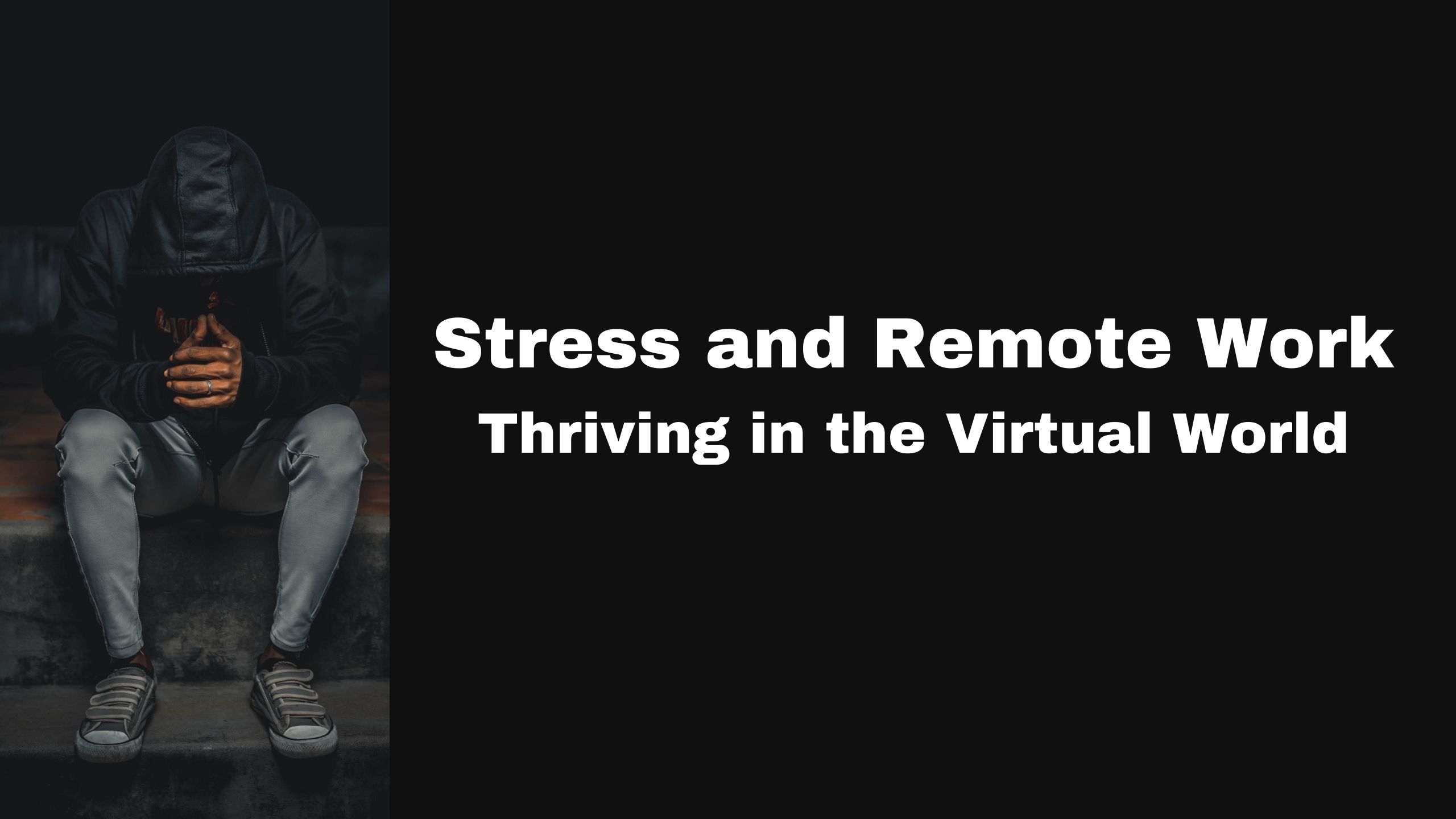Stress and Remote Work: Thriving in the Virtual World
The rise of remote work has transformed the way we work, offering flexibility and convenience. However, it has also brought its share of challenges, including stress.
Remote work can blur the boundaries between professional and personal life, making it crucial to find strategies for thriving in this virtual world. In this article, we’ll explore the relationship between stress and remote work and provide practical tips for managing stress while working remotely.
The Stress-Remote Work Connection
Remote work has unique stressors that can impact employees’ well-being:
Isolation: Remote workers often experience a sense of isolation, missing the social interactions and camaraderie of the office.
Work-Life Balance: The boundary between work and personal life can become blurred, making it challenging to disconnect and relax.
Communication Challenges: Miscommunication and feelings of disconnection can arise due to reliance on digital communication tools.
Distractions: Working from home can introduce distractions that reduce productivity and increase stress.
Lack of Supervision: Some remote workers may struggle with self-discipline and accountability in the absence of direct supervision.
Strategies for Thriving in Remote Work
Set a Routine: Establish a daily routine that includes designated work hours and breaks. Stick to your schedule to create a sense of structure.
Create a Dedicated Workspace: Designate a specific area for work to mentally separate your professional and personal life. Ensure it’s comfortable and free from distractions.
Frequent Communication: Stay connected with colleagues through video calls, chats, and emails. Regular communication can combat feelings of isolation.
Set Boundaries: Clearly define your working hours and communicate them to family members or housemates to avoid interruptions.
Take Breaks: Schedule short breaks throughout the day to recharge and reduce stress. Use this time to stretch, walk, or practice deep breathing exercises.
Stay Organized: Use digital tools and to-do lists to stay organized and prioritize tasks. This can help you manage your workload efficiently.
Limit Multitasking: Avoid multitasking as it can increase stress and reduce productivity. Focus on one task at a time to improve concentration.
Practice Self-Care: Prioritize self-care activities such as exercise, meditation, and relaxation techniques to manage stress effectively.
Set Personal Goals: Establish personal goals to maintain motivation and a sense of accomplishment.
Seek Support: Don’t hesitate to reach out to colleagues, supervisors, or HR if you’re facing challenges or experiencing stress. Many companies offer resources for remote workers’ well-being.
Professional Development: Use remote work as an opportunity for professional development. Consider taking online courses or attending virtual conferences to enhance your skills.
Flexible Work Hours: If possible, discuss flexible work hours with your employer to better align your work with your natural productivity rhythms.
Conclusion
Remote work offers many advantages, but it can also introduce stressors that affect your well-being. By implementing these strategies, you can thrive in the virtual world of remote work and manage stress effectively. Remember that finding the right balance between work and personal life is essential, and it may require experimentation and adjustments. With practice and perseverance, you can navigate the challenges of remote work while maintaining your physical and mental health.

